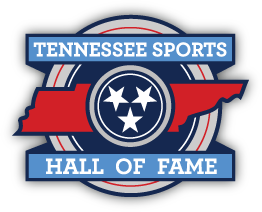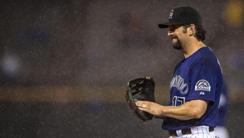Clint Hurdle called Todd Helton’s first professional season the “Summer of 43,” playing off the scoring notation and a movie title. It was 1995. The Colorado Rockies had drafted Helton in the first round and sent the first baseman to their low Class A affiliate in Asheville, N.C.
That wasn’t far from Knoxville, Tenn., where Helton was born and raised and went to the University of Tennessee. There he played first base and pitched and played quarterback, starting four games his junior year before he injured his knee and was replaced by freshman Peyton Manning. Instead of launching his career far from his storied past, Helton was surrounded by it. Exhaling was difficult.
“The only peace I think he was able to get was when he got to the ballpark,” said Hurdle, who was Colorado’s minor league hitting coordinator in 1995. “Everybody had to leave him alone there. What he wanted to do then, of course, was show everybody in the world, everybody in the organization why he was the No. 1 pick.”
Hurdle had told the left-handed hitting Helton that he was born with the ability to beat a pitcher’s best pitch with a base hit to the opposite field, and to never lose that. But with the right-field foul pole just 297 feet away in Asheville, Helton tried to do something he had never done — he tried to pull the ball and hit it far. Instead he ended up grounding a lot of balls to second base.
“Hence the summer of 4-to-3 goofball comment that I made,” said Hurdle, who now manages the Pittsburgh Pirates.
When the Rockies drafted Helton, their manager was Don Baylor. He issued an edict: No one in the organization was to do anything with Helton’s swing. Not even the slightest tinkering. Nothing. When Hurdle arrived in Asheville, Hurdle could see why.
“The swing mechanics, the swing plane — it was a beautiful swing,” Hurdle said. “It’s a picture-perfect swing. All the basic hitting mechanics were in the swing. Every one you could ever want.
“That’s where it started, and there was never a doubt in my mind this guy was going to be a big league hitter, was going to be an offensive game-changer.”
Helton lived up to those lofty expectations. But his game-changing days are increasingly rare. Helton turns 40 on Tuesday. He has made an irreversible passage, a descent reserved for very few major leaguers, and one that’s by no means easy: He was great; now he’s in a larger and less lofty pool of players who fall into the good-to-very good range.
“I’m not very good anymore, but I get by,” Helton said. “Yeah, it’s tough, absolutely. Absolutely.”
He is a one-team icon, the most identifiable player ever to play for the Rockies and the franchise’s all-time leader in most offensive categories. His No. 17 will be the first the Rockies retire. Helton hasn’t formally announced that he will retire after this season. But that’s when his contract ends, and he doesn’t sound like someone itching to return.
“Frustration level has grown in the sense that I just can’t get to certain pitches,” Helton said. “In my mind, when I’m swinging, I’m waiting for a loud sound to happen, and it never happens.”
Helton chuckled before continuing, “And it’s a pitch I’ve hit many a times. It’s not that I was fooled. Sometimes your body is not as quick as it used to be. That’s frustrating, a guy getting you out, when you know he shouldn’t get you out.”
Helton is hitting .254 with 13 doubles, eight home runs and 40 RBI in 287 at-bats spread over 94 games. He typically doesn’t play a day game after a night game and often isn’t in the lineup when a left-handed pitcher starts for the opposition.
“I don’t care how good shape you’re in, how good you take care of yourself,” Helton said. “At 40 years old, you can’t play 162 games. The only way I could is if we played every one in the same spot at the same time every day, and I didn’t have to travel.”
Helton said his body “feels great.” Back trouble caused him to miss virtually the entire second half of the 2008 season and resulted in September surgery. He came back in 2009 and hit .325 with 15 homers and 86 RBI in 151 games. Lower back stiffness sidelined Helton for a month in 2010. He fought back in 2011 and hit .302 with 14 homers and 69 RBI in 124 games. Last year, a torn labrum in his right hip limited Helton to six starts in the second half before season-ending surgery in early August.
“The toughest part is say we go on a six-game road trip, catch four planes, eight buses and gone from the family for a week,” Helton said, “and I get two hits. And we win two games. I’m like, ‘That wasn’t worth it. That wasn’t worth my time away (from his wife and their daughters, who in September will turn 11 and 4).'”
Yet with the end in sight, Helton knows that when he retires, something will be gone, something irreplaceable and more rewarding and meaningful than the camaraderie of teammates.
“There’s nothing better than competing on the highest level at anything,” he said. “Whatever your profession is, to be able to do that is a blessing. People say they miss the clubhouse, they miss sitting around talking to the guys. I’m going to miss that some, but I’m going to miss the competition.
Helton hit one of the most memorable home runs in Rockies franchise history on Sept. 18, 2007, a two-out, two-run walk-off shot on a 1-2 pitch from Dodgers closer Takashi Saito that gave the Rockies a 9-8 win and a doubleheader sweep. The win was the third straight on what became an 11-game winning streak and part of an improbable 14-1 surge that carried the Rockies to the postseason.
“It’s not even the thrill of the home run in that situation,” Helton said. “It’s the thrill of the situation. It’s being able to be in that situation. Even when you strike out in that situation, I’m still going to miss that situation. Whatever the outcome is, good or bad.”
Helton is renowned for prolonging at-bats, for making pitchers work, both mentally and physically. He has the uncanny ability to foul off a pitcher’s pitch, and those long, grinding at-bats still occur.
“Few and far between, but yes,” Helton said.
Scouts say Helton’s bat speed has slowed and that he’s geared to hit balls to the opposite field because he can’t turn on them with the same authority as before. And Helton admits that in the late innings of a blowout game, mustering the intensity for an at-bat is difficult. Ten years ago, it didn’t matter what the score was, the focus and intensity never varied.
“Absolutely,” Helton said. “That has changed. I’m not saying I’m proud of it. I’m not saying it’s the best thing. That’s the honest answer.”
What hasn’t changed much is Helton’s defense. It is still superb. Even if age has robbed him of a step, Helton’s throwing, his soft hands, his ability to scoop low throws out of the dirt and his ability to charge and field bunts are all intact.
“He’s maybe not going to give the same production that obviously he did at one point or that you look for from a first baseman,” said Rockies manager Walt Weiss, a former teammate of Helton’s. “But he brings other things. He still gives you good at-bats. He helps us win in other ways beside hitting a home run. His defense is still top of the game.”
Helton’s heyday was from 1999-2004. During those six seasons, he annually averaged 48 doubles, 37 home runs, 121 RBI, 124 runs scored, 197 hits and a .344 batting average.
He is a five-time All-Star and has won three Gold Gloves, though both were most recently awarded in 2004. A year earlier, Helton won the third of his three Silver Sluggers. Since then other first basemen have emerged in the National League, namely Albert Pujols along with Ryan Howard, Prince Fielder when he was with the Brewers, and Joey Votto.
But as Helton closes in on 2,500 hits, his across-the-board statistics resonate — and will put him in elite company. The only player with at least 2,500 hits, 550 doubles, 350 home runs and a .310 career batting average is Stan Musial. Musial’s bottom line included 3,630 hits, 725 doubles, 475 home runs and a .331 average. He was one of the game’s titans, his output far exceeding that of Helton, who has 2,493 hits, 583 doubles, 362 home runs and a .317 average. But with the end presumably near, Helton’s impressive body of work has helped cushion his decline.
“If I step back and look at the big picture, I’ve done more than I ever expected to do in the game,” Helton said. “I’ve got more hits. I’ve played better defense. I’ve played longer than coming into it you’d ever think. So in one sense it’s hard; in another sense you have to be realistic and look at the big picture and still realize that every day you go out there is a blessing, even when it’s tough.
STORY BY: Jack Etkin
ARTICLE FROM: sportsonearth.com

